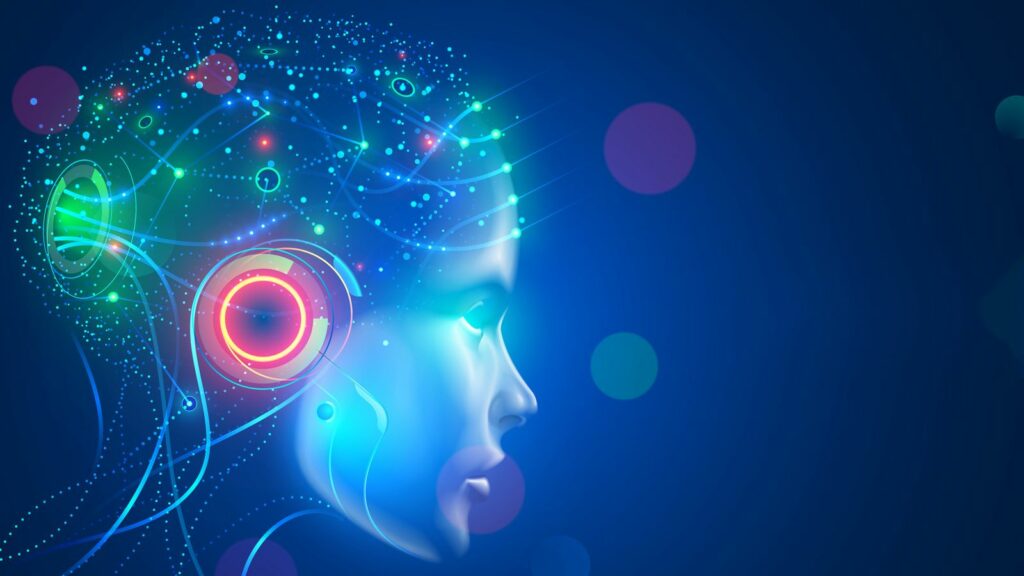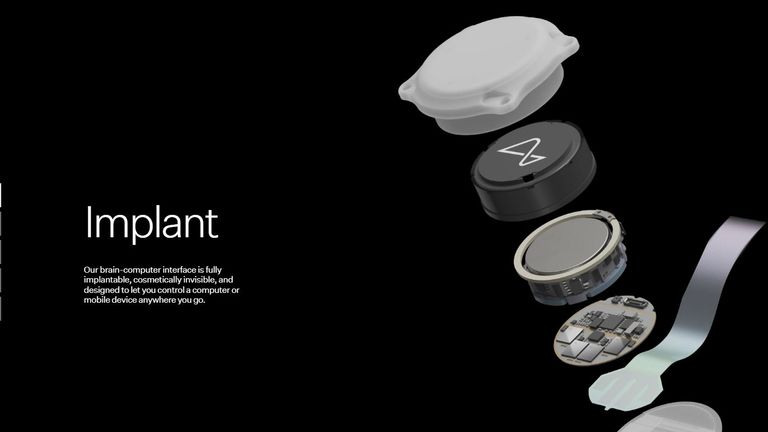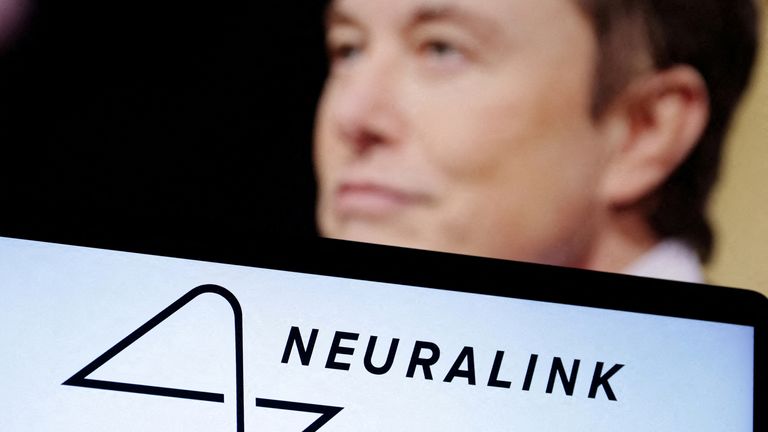Elon Musk’s brain chip technology heralds the age of the cyborg | Science & Tech News

You could say the age of the cyborg has dawned.
Brain chips are increasingly being tested in paralysed people to help them move.
The chips “read” electrical signals from neurons that determine movement and then reroute the instructions around a spinal injury to control the muscles or a robotic arm.
Last year, Gert-Jan Oskam demonstrated an implant that enabled him to stand, walk and even climb stairs.
Please use Chrome browser for a more accessible video player
1:39
Watch paralysed patient walk again
His muscle control was slow and deliberate, but it was astonishing to see his thoughts, his intent to move, being turned into action.
The technology has been developing over several years.
In 2009 I was in a lab at the University of Pittsburgh in the US, watching a monkey feed itself a banana by controlling a robotic arm with its thoughts.
That team of scientists and doctors are now implanting the chips in people. One even fist-bumped President Obama.
Click to subscribe to the Sky News Daily wherever you get your podcasts
This content is provided by Spreaker, which may be using cookies and other technologies.
To show you this content, we need your permission to use cookies.
You can use the buttons below to amend your preferences to enable Spreaker cookies or to allow those cookies just once.
You can change your settings at any time via the Privacy Options.
Unfortunately we have been unable to verify if you have consented to Spreaker cookies.
To view this content you can use the button below to allow Spreaker cookies for this session only.
Allow Cookies Once
The involvement of Elon Musk adds a little extra spice to the tech.
His company, Neuralink, has used a robot to successfully implant a chip in someone’s brain, but it doesn’t seem from the few details released so far to have been hooked up to a device.
Musk has talked in the past about using brain chips to control keyboards and so on.

The first human patient has received an implant from brain-chip startup Neuralink

Musk said ‘initial results show promising neuron spike detection’
This is still very experimental technology.
Exposing the brain and implanting a foreign object carries huge risk of infection and injury.
So it is certain that medical regulators will insist the procedure is only used where the benefits outweigh the risks.
People with paralysis and degenerative brain conditions are the obvious candidates.
Read more:
Can you beat a lie detector test?
Elon Musk’s most controversial moments
Professor Stephen Hawking twitched his cheek muscle to control a computer cursor and select words – roughly one every minute. It’s likely that in future a chip would rapidly turn brain signals into speech.
Musk is a visionary though. Would his goal end at helping people walk or use a computer?
Perhaps we might all one day get brain chips to control our surroundings, perform complex calculations more quickly or download our memories for long-term recollection.
It sounds far-fetched. But with every brain-controlled step in the technology it becomes more likely.
Recent Posts
- Kuoni extends out-of-date range flights to more destinations
- Fred Olsen Cruise Lines ship makes Newcastle debut
- Agent Diary: Wildlife experiences are a big draw – be sure to sell only the ethical ones
- Virgin Atlantic plans electric air taxi service for UK
- Algarve ranks as cheapest destination in holiday money barometer







Recent Comments